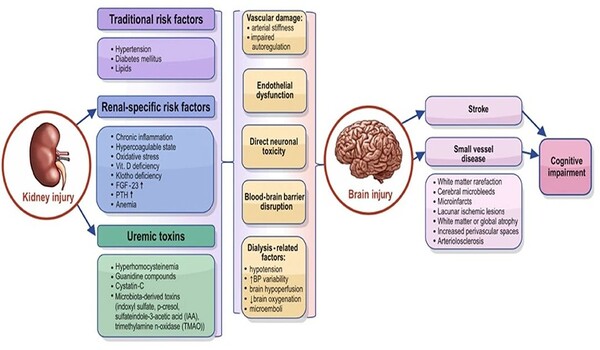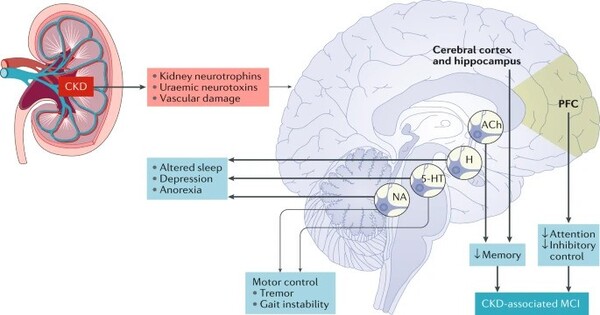Cognitive impairment is one of the most difficult challenges for patients with chronic renal disease. It can significantly damage their quality of life and frequently increases the risk of dementia in people affected. According to studies, a kidney transplant can restore cognitive impairment, demonstrating that this illness is treatable. However, the precise pathways that cause cognitive decline are largely unknown. A new study undertaken by the University of Leipzig Medical Center presents key insights from fundamental research that could be used to create treatment methods for chronic kidney disease. The findings have been published in the journal Kidney International.
Microglia are specialized immune cells in the brain that play an important part in the transformation of neuronal activities. These cells are frequently activated in response to inflammatory processes, which have an impact on the brain and cognitive functioning. “In the present study, we were able to show that chronic kidney disease (CKD) leads to the activation of microglial cells, which has a number of negative effects on the brain and, in particular, disrupts the potassium homoeostasis in nerve cells,” explains Dr. Silke Zimmermann, first author of the study and researcher at the University of Leipzig Medical Center.
Our research shows that the regulation of potassium efflux in microglial cells and the preservation of neuronal function could be promising approaches for the treatment of cognitive impairment. We hope that our findings will help to further decipher these mechanisms and develop targeted therapies for cognitive impairment in chronic kidney disease.
Dr. Silke Zimmermann
To investigate the mechanisms of chronic kidney disease in the brain, the Leipzig researchers established a surgical mouse model in which 5/6 of the kidney tissue was removed. The study data showed that these mice performed worse in cognitive tests and exhibited reduced neuronal potassium turnover. Analysis of gene expression showed that several signalling pathways linked to diseases such as Alzheimer’s, Huntington’s and Parkinson’s were affected in the neuronal cell clusters of the mouse models with chronic kidney disease.
The study analyses of the experimental approaches, both in cell cultures and in mouse models, showed that chronic kidney disease disrupts the barrier of the brain endothelial cells. The Leipzig researchers therefore showed that the progressive uremic toxicity in kidney failure alters vascular permeability in the brain. This disruption of the blood-brain barrier enables toxic substances to reach the brain and trigger inflammatory reactions. This process in turn impairs the balance of potassium in the microglial cells.

The researchers were successful in restoring potassium homeostasis in the cells by inhibiting a receptor on nerve cells with an inhibitor, which also reduced cognitive impairment. “We have thus succeeded in discovering a brain mechanism that plays a critical role in the development of poor cognition. And we hope that treating this process will be sufficient to improve cognition in affected patients,” says Professor Berend Isermann, the present study’s corresponding author.
“Our research shows that the regulation of potassium efflux in microglial cells and the preservation of neuronal function could be promising approaches for the treatment of cognitive impairment. We hope that our findings will help to further decipher these mechanisms and develop targeted therapies for cognitive impairment in chronic kidney disease. Another vision we have is to investigate novel biomarkers that can indicate the development of cognitive impairment at an early stage,” says Dr Zimmermann, clinician scientist at the Institute of Laboratory Medicine, Clinical Chemistry and Molecular Diagnostics. She led the basic research project together with institute director Professor Berend Isermann.
















